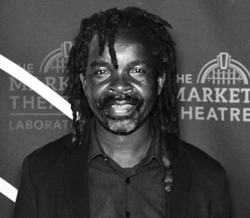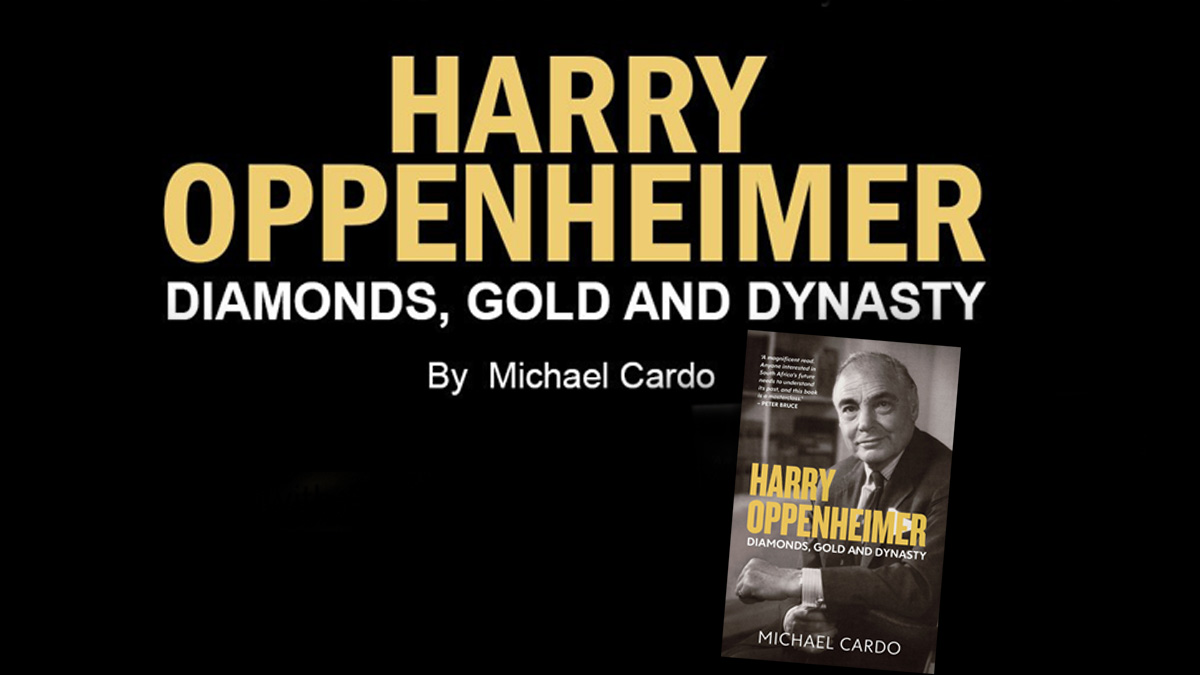Harry Oppenheimer: Diamonds, Gold and Dynasty, a biography of the business leader to be launched
By Edward Tsumele, CITYLIFE/ARTS Editor

In post-Apartheid South Africa, as the country evolves, most times painfully and few times smoothly, socially, politically and economically, its vocabulary also changes, evolving with the times.
For example, just about 30 years ago, the dominant words used in everyday discussions among South Africans, white and black, included of course democracy, development state, unity, reconciliation, forgiveness, inclusive development, and in later years even social cohesion. The name Nelson Mandela, Bishop Tutu and the Rainbow Nation were also words that were uttered by many across race, gender and culture.
This is during the time when the country, inspired by the miraculously relatively smooth transition from apartheid to democracy as new leaders led by Mandela and his ANC party took the levers of state power and drove the ship into new, albeit untested territory in the history of the country. There was much hope in the air and therefore the vocabulary used in every day conversation across race and class was that which embraced the mood of the time.
However today, we live in a country that, to many has remarkably morphed into something that not even in their wildest imagination in 1994, it would become. Words of inspiration and aspiration such as the inclusive development, Rainbow Nation, miracle, unity, reconciliation that were on the lips of many, have been one by one, replaced by negative words such as racism, intolerance, xenophobia, corruption, state capture, tenderpreneurship, fronting, sexism and white monopoly capital, to name but just a few. How times have changed. Racial tensions, and at times degenerating into physical attacks have become the feature of South African daily life as the centre struggles to hold. The relationships between the business sector, workers and government have become frothy, uncertain at the best of times, and at worst of times, pretty hostile.
This train of thought bombarded me this week when I got an invitation to attend, the launch of a book, a biography of a man who played a central role in the country’s business life, even a dominant or monopoly role If you like, depending on whether you are on the centre, right or left of the ideological spectrum. He and other business people also played an important role in negotiating South Africa’s transition from apartheid to democracy as he and other big business leaders became a link between two hostile sides at the time, the then exiled African National Congress leadership and the leaders of the then ruling National Party Government.
That initial contact, eventually lead to difficult, but meaningful negotiations that eventually birthed the “New South Africa” in 1994. Whether you prefer to call Harry Openheimer and other business leaders who smoothed the path for both ANC and National Party to see the wisdom of negotiation over the stupidity of continuing a war that none of them was not assured of victory, White Monopoly Capital, there is one thing you cannot deny these gentlemen (most of them If not all were men). That thing is this: They played a crucial role in facilitating the dawn of democracy. This fact is important because it is too easy today to brush that aside in an increasingly socially and racially polarised society. It does not really matter what the motive was, but the outcome of that initial engagement with both the ANC and the National Party leaders, led to the meaningful Codesa negotiations.
It is within this context that a book about Opeinhemer in today’s political environment is important, and it would be interesting to see how the author positions the role that big business played in bringing warring parties to the negotiation table, but also to give us a hint of what current business leaders could play in stirring a troubled South Africa in a direction that gives hope, recaptures the spirit of 1994 and brings its people together once more.
I hope the author of this book looks holistically into the times and life of this business leader, both the ugly and the beautiful that may have entwined his life in relation to the evolution of South Africa from an apartheid state to a democratic state as well as the role of business in building a nation. It is for this reason that I am looking forward to get my copy of Harry Oppenheimer: Diamonds, Gold and Dynasty by Michael Ardo.
After all, those who have so far read the book sing praises of the author. ‘A magnificent read. Anyone interested in South Africa’s future needs to understand its past, and this book is a masterclass,” says veteran journalist and editor Peter Bruce.
‘This book will surely be the most readable, best informed, most complete account of Harry Oppenheimer’s life there is ever likely to be. Meticulously researched and superbly written, this authoritative work sheds new light on the multifaceted legacy of a renowned South African industrialist,” says Bill Nasson, historian and author.
“As chairman of Anglo American and De Beers, Harry Oppenheimer held sway over his family’s gold and diamond empire for a quarter of a century. He combined a passion for commerce with a streak of creative genius.
In this, the first comprehensive biography of Oppenheimer, Michael Cardo has produced a vivid portrait based on unrestricted access to his subject’s private papers and interviews with Oppenheimer’s relatives and associates.
Cardo brings to life the places, people and events that shaped Oppenheimer’s career at the intersection of business and politics. From the diamond fields of Kimberley, where his father, Ernest, arrived to seek his fortune in 1902, through his long apprenticeship as heir apparent, to Harry Oppenheimer’s emergence on the world stage as a magnate and monarch in his own right – the ‘King of Diamonds’ and the man with the Midas touch – Cardo tells the story of a dynasty.
As a financier, philanthropist and public figure, Oppenheimer straddles the history of 20th-century South Africa. In the 1950s the National Party regarded him as a threat to Afrikanerdom, the sinister embodiment of English ‘money power’. Forty years later, Nelson Mandela praised Oppenheimer as a nation builder, a key figure in South Africa’s transition to democracy. Yet nowadays, Oppenheimer is demonised in some quarters as the archetype of ‘white monopoly capital’ and blamed, in part, for democracy’s disappointing dividends,” the publisher Jonathan Ball Publishers says about the book ahead of its launch ay Hyde Park Corner.
Book launch details
Exclusive Books, Tuesday 18 April, 18. 30 V&A Water Front, Cape Town, and April 24, Exclusive Books, Hyde Park Corner, Johannesburg, 18.30
FESTIVALS
Michael will be participating in the Franschhoek Literary Festival that is taking place from 19 – 21 May. Click here to view the programme and book your ticket. Michael will also be participating in the Kingsmead Book Fair in Johannesburg on Saturday 27 May, 2023.










